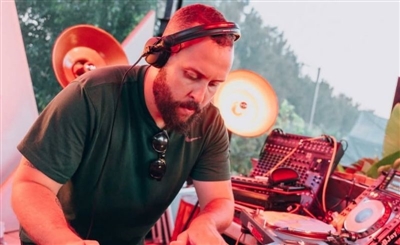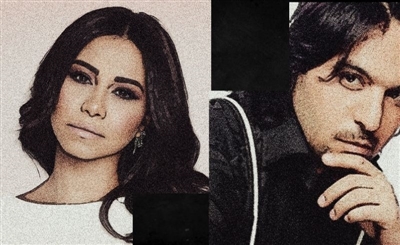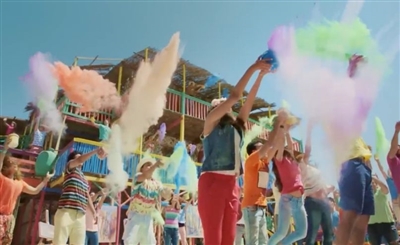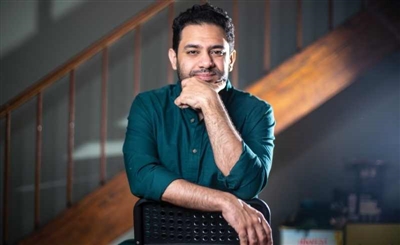Copied
23 Must-Watch Middle Eastern Music Documentaries
A collection of 23 informative Middle Eastern music documentaries, illuminating the facets of artists lives from Oum Kulthum and an estranged Algerian Chaabi orchestra, to Egyptian trap and Turkish psychedelia; spotlighting music's ever fluctuating place in shifting societies across the region.
Apr 19, 2020
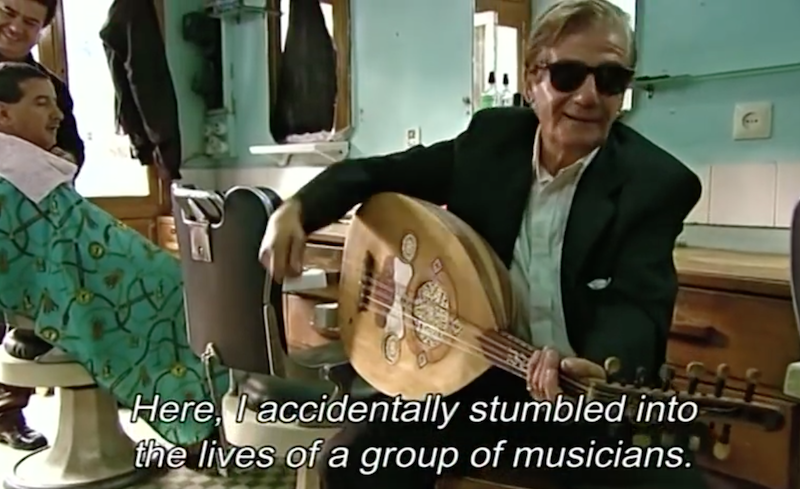
Umm Kulthum: A Voice Like Egypt (1996)
The first English language documentary about Umm Kulthum, Egypt's still reigning gem and beating heart of Arabic music, this film by Michal Goldman was produced, directed and edited for Cambridge. The documentary takes the viewer from the Nile Delta village where she was born, to her haunts and workplaces around Cairo. It paints a picture of the queen of Arabic music through interviews with Cairene's of all social strata, from little girls to Nobel laureate author Naguib Mahfouz.
<iframe width="800" height="450" src="https://www.youtube.com/embed/TPBMFB0j6do" frameborder="0" allow="autoplay; encrypted-media" allowfullscreen></iframe>
We Loved Each Other So Much (2003)
A look into the life of beloved Lebanese diva, Fairouz, through the eyes of her fans in Beirut. Though the interviewees span across an array of political and religious leanings, they all connect deeply with Fairouz's music. Jack Janssen's documentary uses the topic of the singer's societal and cultural importance to explore other darker sides of Lebanese history, particularly the civil war, and extract painful memories. This narrative, accompanied by the at once haunting and joyful voice of Fairouz, makes for a heart-wrenching watch.
<iframe width="800" height="450" src="https://www.youtube.com/embed/618JbleIQnI" frameborder="0" allow="autoplay; encrypted-media" allowfullscreen></iframe>
Crossing the Bridge: The Sound of Istanbul (2005)
Director Fatih Akin highlights the diverse and vivid music in modern Istanbul. He and German musician Alexander Hacke documented artists with a mobile recording studio, painting a portrait of the range of artists that give Istanbul an eclectic music scene worthy of the city's vibrancy. It features Istanbul's veteran musicians along with fresh faces, and genres from psychedelic rock to Turkish Roman ("Gypsy" music), rap and indie rock.
<iframe width="800" height="450" src="https://www.youtube.com/embed/fV3v5scd6EE" frameborder="0" allow="autoplay; encrypted-media" allowfullscreen></iframe>
Heavy Metal in Baghdad (2007)
This Vice produced film follows filmmakers Suroosh Alvi and Eddy Morreti as they track down Acrassicauda, a Baghdad based metal band that was featured in a Vice article four years prior. They find the group in limbo inside the war-torn, bleeding shell of their city. Interviews with Acrassicauda's members reveal the pain and difficulty of trying to maintain a life inside a subculture in a society on the brink of implosion.
<iframe width="800" height="450" src="https://www.youtube.com/embed/hdE-JIOpHHc" frameborder="0" allow="autoplay; encrypted-media" allowfullscreen></iframe>
Lost Songs of Anatolia (2010)
Nezih Ünen is a composer, producer and arranger who decided to make a film documenting the ancient traditional musical forms found in Anatolia. It takes the viewer through the dramatically beautiful Anatolian countryside, featuring around 20 different local acts performing folkloric songs and talking about the myths and rituals of their land and civilization. Striking visuals, esoteric content, and wildly engaging music bring to light the timeless validity of ancient culture.
<iframe width="800" height="450" src="https://www.youtube.com/embed/OCZzkLuk7SE" frameborder="0" allow="autoplay; encrypted-media" allowfullscreen></iframe>
El Gusto (2012)
A Franco-Irish-Algerian documentary directed by Safinez Bousbia, El Gusto is a deeply touching portrait showing music, time, and the concept of home as victims of war. It follows the members of Orchestre El Gusto, who were once a thriving ensemble of Jewish and Muslim musicians, now separated by the Mediterranean due to civil war. Former members in both Algeria and France talk about their golden era of coexistence, shattered by the need for the Jews to flee to France. Most amazingly, it shows the group reunite for a sublime concert after 50 years of separation. Additionally, the soundtrack is an exceptional album by the group.
<iframe width="800" height="450" src="https://www.youtube.com/embed/-RVN1ZvHZCk" frameborder="0" allow="autoplay; encrypted-media" allowfullscreen></iframe>
Electro Chaabi (2013)
A look into the mahraganat scene that with the Egyptian revolution, swept from the chaabi neighborhoods of Cairo to take the country, and later the world, by a storm of addictive and chaotic sound. Traditional rhythms mixed with synthesizers, demented studio production, and real life lyrics brought to light a vibrant and often overlooked section of Egypt society, while blowing up stereos from tuk-tuks, mini buses, and stadiums. Director Hind Meddeb focuses on the music as an outlet for Egypt's restless but creative youth.
<iframe width="800" height="450" src="https://www.youtube.com/embed/hziO8XoFLzY" frameborder="0" allow="autoplay; encrypted-media" allowfullscreen></iframe>
Les Petits Chats (2015)
Director Sherif Nakhla created this award nominated rockumentary about Les Petits Chats, the iconic Egyptian Western hit cover band that got their start in 1967. It follows the history of the quintet through their shifting lineups until their disbandment in the '80s. Then, it follows the band as they reunite for a performance in 2009. The film shows Egypt in a drastically different cultural era, striking a chord with both those who were alive in that time, and those who are young enough to shape the present and future.
<iframe width="800" height="450" src="https://www.youtube.com/embed/VGQeDTG5X6Q" frameborder="0" allow="autoplay; encrypted-media" allowfullscreen></iframe>
Yallah! Underground (2015)
This film is an escapade through the independent music scenes of Cairo, Beirut, Amman and Ramallah. Filmed over four years, director Farid Eslam's intention in the film was to portray the thriving and creative musicians making art under a number of adverse and less than favourable situations, featuring artists such as Zeid Hamdan, the Arabian Knightz and Ousso Lotfy. Guerilla style camera work and enlightening interviews offer an exclusive look into oft looked over but spectacular artists of the region.
<iframe width="800" height="450" src="https://www.youtube.com/embed/sx5AC9jy6cE" frameborder="0" allow="autoplay; encrypted-media" allowfullscreen></iframe>
Raving Iran (2016)
This is a German-Iranian film directed by Susanne Regina Meures. The film follows two electronic musicians, Anoosh Rakizade and Arash Shadram (aka Blade&Beard) as they pursue their passion for DJing under the oppressive Iranian regime. They organize underground raves, and produce and distribute an album...activities that eventually result in a police raid on a party, in which Anoosh is arrested, eventually leading them to apply for asylum abroad. A fascinating look into the underground scene in Iran, and the lengths artists go to to create despite authoritative dangers.
<iframe src="https://player.vimeo.com/video/161153814" width="800" height="450" frameborder="0" webkitallowfullscreen mozallowfullscreen allowfullscreen></iframe>
<p><a href="https://vimeo.com/161153814">RAVING IRAN Trailer (facebook.com/RavingIran; www.ravingiran.com)</a> from <a href="https://vimeo.com/user19952880">Christian Frei</a> on <a href="https://vimeo.com">Vimeo</a>.</p>
From Beneath the Earth (2017)
From Beneath the Earth is a short documentary highlighting the struggles in life and art of five Palestinian musicians as they grapple with and attempt to transcend politics. It is produced by Mideast Tunes, the online platform promoting underground music from the MENA regions, in collaboration with Palestinian director Sami Alalul. The film features Mahmoud Jrere of acclaimed hip-hop duo DAM, West Bank hip-hop group Saaleek, Maysa Daw, and Haifa singer-songwriter Rasha Nahas. Though only 21 minutes, it illuminates the positive side of making art in the negative state of life under occupation.
<iframe src="https://player.vimeo.com/video/220010727" width="800" height="450" frameborder="0" webkitallowfullscreen mozallowfullscreen allowfullscreen></iframe>
Palestine Underground (2018)
Palestine Underground by Boiler Room, 4:3 and Ma3azef documents the resilience of a burgeoning music scene undeterred and fuelled by political restrictions, building bridges through a shared sound and identity.
For the past ten years, Palestinian music collective Jazar Crew have been fostering a vibrant party scene in Haifa, as an alternative to the mainstream club scene in Israel.
Thanks to the internet, they've connected with artists in Ramallah, Palestine, and defied the separation wall to travel to the West Bank and organise events with Techno DJs Sama' and Oddz, and members of the tantalising hip hop and trap scene, the collectives Saleb Wahad and Bltnm.
Palestine Underground follows a week in the life of these artists and friends, in the lead up to the first Boiler Room in Ramallah in June 2018.
<iframe width="560" height="315" src="https://www.youtube.com/embed/M-R8S7QwO1g" frameborder="0" allow="accelerometer; autoplay; encrypted-media; gyroscope; picture-in-picture" allowfullscreen></iframe>
Underground / On The Surface (2013)
A passion-stirring documentary set around the birth of the illustrious Egyptian shaabi/mahraganat scene in which director Salma Tarzi chases the musical and cultural phenomenon from it's lowly stages in the streets of Madinet El Salem and El-Matareya, to sold out festivals and beyond, all through the eyes of two of the genre's favorite sons Oka and Ortega and their crew the 8 Percenters. The film would eventually lead her to winning the best director award at the Dubai International Film Festival
She managed to catch on at a time before most people didn't quite know what was going on but collectively felt the vibrations rising up from the street; the pure energy of a Shaabi street-party or performance became hard to ignore for the masses.
<iframe width="560" height="315" src="https://www.youtube.com/embed/6C1dyAafCnM" frameborder="0" allow="accelerometer; autoplay; encrypted-media; gyroscope; picture-in-picture" allowfullscreen></iframe>
Mic Drop: Mr Kordy Sand Nikka and The Cairo City Gangstas (2017)
Equal parts surreal and visceral SceneNoise’s own Mic Drop documentary followed the trials and tribulations of an Egyptian rap group that appeared at the dawn of an era where Hip Hop was being imported into the Arab world. Channeling the persona of West Coast gang members via central Cairo, the Cairo City Gangsta’s (CCG) lead by rapper Kordy AKA Sand Kikka developed a cult like following - a 3,000 member strong familia and businesses selling merch and developing a tattoo parlour. Through the surface level bravado, “money, bitches and guns, Mic Drop reveals a softer side to the crews fearless leader where we see a reflective Kordy brooding on the affect his lifestyle has on his desire to have a normal life and family, shortly after the CGG headquarters are raided.
<iframe width="560" height="315" src="https://www.youtube.com/embed/xzI9SLHIT88" frameborder="0" allow="accelerometer; autoplay; encrypted-media; gyroscope; picture-in-picture" allowfullscreen></iframe>
Sama (2019)
As part of a series of documentaries by Dutch filmmaker Jan Beddegenoodts that spotlight musicians fueling strong cultural evolution in their countries, SAMA follows Sama Abdulhadi, a producer, sound artist and DJ known as the queen of techno in Palestine. She organized the first techno nights in Ramallah and has since been touring the globe, giving techno music workshops to kids and raising awareness around the violence of the Israeli occupation of Palestine.
<iframe width="560" height="315" src="https://www.youtube.com/embed/Wl0818z4xt8" frameborder="0" allow="accelerometer; autoplay; encrypted-media; gyroscope; picture-in-picture" allowfullscreen></iframe>
The Wanton Bishops' First-Ever American Tour | Walk It Home (2015)
The Wanton Bishops are a band from Beirut that plays the blues like they were born on the bayou of Louisiana - though they have never left Lebanon. Bar fights, clenched fists, and whiskey bottles brought Nader Mansour and Eddy Ghossein together, but it was music that solidified their bond as The Wanton Bishops. This Red Bull Music produced short documentary follows the band on their first tour of the US.
<iframe width="560" height="315" src="https://www.youtube.com/embed/A3c3wtxKQxk" frameborder="0" allow="accelerometer; autoplay; encrypted-media; gyroscope; picture-in-picture" allowfullscreen></iframe>
Why Beirut Is The Next Ibiza | Underground (2017)
While cities like New York, London, Berlin, Miami are hailed as the world's nightlife havens, less-traveled destinations are often overlooked. With that in mind, Red Bull Music took a flight to Beirut, Lebanon, to explore one of the most dedicated and unique electronic scenes on the planet. From BO18, A bomb shelter turned the legendary club, to Uberhaus which boasts a lighting rig that rivals the world's best clubs, we explore Beirut's parties and the people behind them.
<iframe width="560" height="315" src="https://www.youtube.com/embed/60tMtfXavoU" frameborder="0" allow="accelerometer; autoplay; encrypted-media; gyroscope; picture-in-picture" allowfullscreen></iframe>
Hasaballah, The People's Music (2017)
This fascinating Al Jazeera produced documentary tracks the rise of one Egypt’s most renowned sounds - the Hasaballah brass band. More than 150 years ago, a musician started a band in Cairo's Mohammed Ali Street, a hub for Arab musicians, belly dancers and instrument makers, near the opera house, cinemas and theatres. Mohammad Hasaballah's band became so popular that it gave birth to an entire musical genre, which still resonates across Egyptians today.
<iframe width="560" height="315" src="https://www.youtube.com/embed/GG4BvvchmVs" frameborder="0" allow="accelerometer; autoplay; encrypted-media; gyroscope; picture-in-picture" allowfullscreen></iframe>
Rabka (2019)
The two part SceneNoise series - part music video part mini-documentary - hit the Egyptian trap iron just before it got hot and burned through the stratosphere. Wegz and Marwan Pablo have quickly become household names since, disrupting the scene and demolishing class boundaries in terms of listeners. These cinematic vignettes of the artists reveal how they invented their sound and where they see the trap scene going.
<iframe width="560" height="315" src="https://www.youtube.com/embed/OsUZKX2kmI4" frameborder="0" allow="accelerometer; autoplay; encrypted-media; gyroscope; picture-in-picture" allowfullscreen></iframe>
Vinyl Culture: Istanbul (2016)
Having previously visited Hawaii, Bangkok and Lisbon, The Vinyl Factory’s dedication to revealing cities’ hidden vinyl cultures landed them in Istanbul.
Sitting astride two continents, Asia and Europe, the city is truly a melting pot of cultures, traditions, food, art and most importantly, vinyl. Music back in ’70s Turkey was made with flair and spirit, drawing on Western psych, disco, rock as much as Eastern traditions and folk. “It’s not kitchy, it’s not pop. It’s strange and really good,” says Mete Adunduk, who appears in the film.
But the record companies stopped pressing vinyl in the early ’80s so most of the records from that fruitful era are extremely rare and sought-after. These titles are enjoying a revival as reissue and edit labels emerge, the collecting community grows and more record shops open doors. From Analog Kültür to Bomonti Flea markets, there are plenty of places to dig in both the Asian and European sides of Istanbul.
<iframe width="560" height="315" src="https://www.youtube.com/embed/qS79_x0M1yU" frameborder="0" allow="accelerometer; autoplay; encrypted-media; gyroscope; picture-in-picture" allowfullscreen></iframe>
Istanbul Psychedelia: BaBa ZuLa (2018)
Baba Zula is a band that, since '96, has been forging their own sound, aptly dubbed "Istanbul Psychedelia." Armed with electric saz, oud, darbuka and other percussion, oscillators, theremin, wooden spoons, and a vast sense of humour, Baba Zula tempt the sounds of Turkey's musical traditions out of the smoke to playfully coalesce with electronics and synthesizers. They live in the spirit of this playfulness, and their live shows - full of belly dancers, extravagant costumes and live painting - highlight this devotion to impregnating life with sound and color, all while communicating politically radical lyrics.
Boiler Room goes on a trip into the world of Istanbul psychedelia with one of the most prolific bands to come out of Istanbul’s underground scene in recent musical history.
<iframe width="560" height="315" src="https://www.youtube.com/embed/b5QvDwL15HY" frameborder="0" allow="accelerometer; autoplay; encrypted-media; gyroscope; picture-in-picture" allowfullscreen></iframe>
Bulaq (2018)
Premiered on Nowness, Wael Alaa aka Egyptian electro producer Neobyrd made his directorial debut with a short but powerful video about a group of mahraganat artists and their lives in the Bulaq ghetto.
The cinematography is awe inspiring, with footage of the musicians producing and dancing in the studio, doing motorcycle stunts through the ghetto, and showing off the camaraderie that is an important aspect to the mahraganat scene. The main artist, Soska the Inventor, narrates the video, speaking on the reality of the ghetto and the power of mahraganat music beyond its borders. Paired with the editing, some of his narration elicits chills; Alaa wanted the film to “seem as if one of them shot it.”
<iframe width="560" height="315" src="https://www.youtube.com/embed/hyjQMBfltf4" frameborder="0" allow="accelerometer; autoplay; encrypted-media; gyroscope; picture-in-picture" allowfullscreen></iframe>
Kafr El Dawar (2020)
Underneath the smoggy skies of the Egyptian town of Kafr El Dawar, a quiet revolution is brewing. Known for little more than being one of the country’s biggest industrial cities, it is slowly emerging as the new centre of shaabi and rap music in their most original forms – a movement led ferociously and unapologetically by a ragtag, do-or-die collective of rappers, singers, producers and visual artists under the name of Kafr El-Dauwar Records.
Hot off the heels of the collective’s debut album, ‘Ya Khal’, SceneNoise dove deep into the abyss of a musical and artistic uprising that’s flourishing despite a distinct lack of resources and mainstream recognition. This is the new face of underground music in Egypt, the new sound of the marginalised. This is the story of KDR and its founding members.
<iframe width="560" height="315" src="https://www.youtube.com/embed/yUo2jMTNSNg" frameborder="0" allow="accelerometer; autoplay; encrypted-media; gyroscope; picture-in-picture" allowfullscreen></iframe>
Trending This Month
-
Feb 20, 2026



